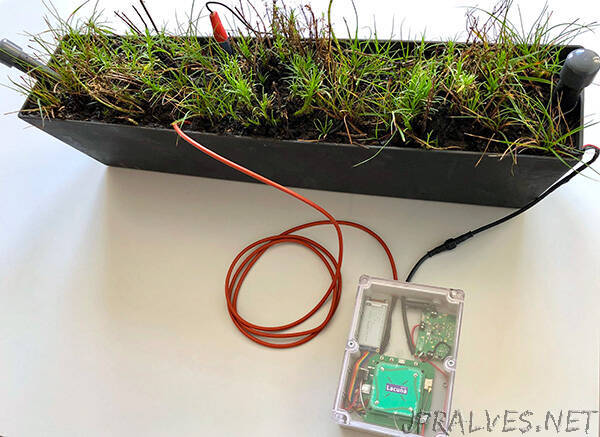
“Plant-e and Lacuna Space combine bio- and space technology for Internet of Things devices
The first-ever plant-powered sensor has successfully transmitted to a satellite in space. The pilot service, using plants as the energy source, has been developed by Plant-e and Lacuna Space. Because the sensor doesn’t need batteries, due to the internal storage in the system, it’ll reduce cost, maintenance requirements and environmental impact. As long as plants continue to grow, electricity will be produced.
Combining the innovative energy harvesting technology developed by Plant-e with the extremely power efficient devices from Lacuna Space, these devices are completely self-sustainable and operate independent from sunlight, day and night.
The Internet of Things (IoT) prototype device, developed by the two companies, uses the electricity generated by living plants to transmit LoRa® messages about air humidity, soil moisture, temperature, cell voltage and electrode potential straight to Lacuna’s satellite. Future applications can be found in critical data gathering from agricultural land, rice fields or other aquatic environments without the need for any external energy sources. The pilot service is supported by the ARTES programme from the European Space Agency (ESA).
Plant-e, a start-up from Wageningen, the Netherlands, has developed a technology to harvest electrical energy from living plants and bacteria to generate carbon-negative electricity. The output generates enough energy to power LEDs and sensors in small-scale products.
Lacuna, based in the UK and the Netherlands, is launching a Low Earth Orbit (LEO) satellite system that will provide a global Internet-of-Things service. The service allows collecting data from sensors even in remote areas with little or no connectivity. At the moment Lacuna Space is offering a pilot service with one satellite in orbit, and three more satellites are awaiting launch during the next few months.”
